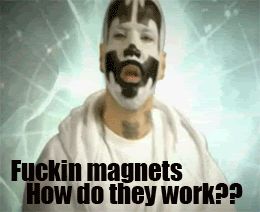Cocko
Oh Dear..
I just wanted to be a part of this thread but didn't know what font or size to post in...
Anyway...
2c
Anyway...
2c

Yes I suppose it must be "dry" hopping
Not in the boil ( wet hopping)

Yes I suppose it must be dry hopping
Not in the boil ( wet hopping)
lolJust to be confusing - I think "wet hopping" (at least in the US) refers to the use of really fresh, straight off the bine, harvest, undried hops
[EDIT - Now look what you've done! You've got me so flustered I mixed up their and they're! Oh the shame of it all!]
Thank you for that handy reader advisory notice. Saved me a lot of time.Typical drivel from posters that only drivel
Frankly speedie, that's complete rubbishNot sure how to go about my assumption on ferment hopping (dry for the sack of some pedantic brewers) but from obviation in the boil there is a lot of action in the wort, so there would be a fair amount of friction going on
Which would cause some sort of electro action (positive / negative charges) which bring about a clumping of particulate
This aids in flocculation of the colloidal matter which gives rise to hazing effect
Now if we take on the ferment hopping aspect of the exercise one could put a similar spin on what is happening in the ferment action
There is a tremendous amount of rolling going on in the wort due to the release of Co2 so I would assume that this would produce a similar phenomenon with respect to electro attraction
Thus bringing about a clear haze free beer
Now the end result is one brew has a colloidal appearance with very grassy notes and the other is brilliant with a balance that is more evident to most samplers
So from basic thought and observation we have attempted to rationalize a thought process into reality
Hay the up side of it is there is still about three hundred liters to taste
Cheers speedie
thihk about how lightning occurs numbnuts

Hmmm beer makes me hazy